According to the aggregated data from the National Health Insurance Service in Korea, the number of individuals seeking medical treatment for sleep disorders has increased by 28.5%, from 825,085 cases in 2018 to 1,098,819 cases in 2022. The annual growth rate of sleep disorders is reported to be 7.8%. It is concerning that such a large number of people are suffering from sleep disorders. As everyone enters March, the month when schools typically begin their academic year, many of you reading this article may also be experiencing distress due to sleep-related issues. Difficulty sleeping may arise in the new school year because most people start a new routine and break away from their previous one. If you are experiencing difficulty sleeping this coming year, now is the time to find a solution that suits you.
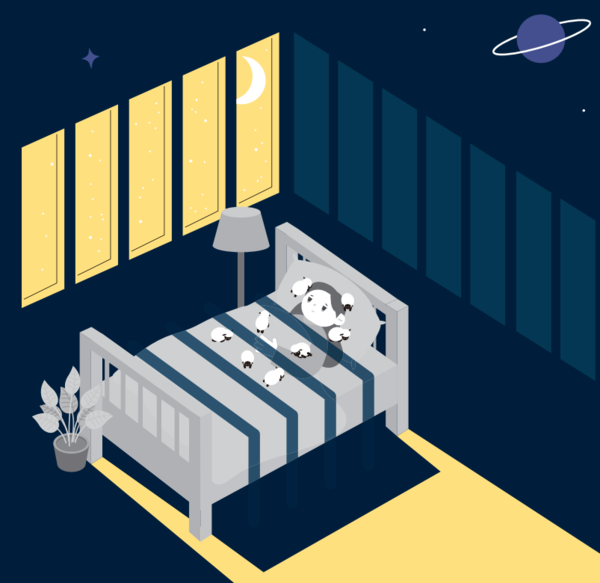
- Exploring Challenges of Students with Sleep Disorders
Ha Yae-one from the Department of Political Science & Diplomacy, Kang Yu-na from the Department of IT Convergence Mechatronics Engineering at JBNU, and Yu Su-han from the School of Electronics and Computer Engineering at Chonnam National University, shared their experiences of struggling with sleep disorders.
Ha: During the school term, I tend to feel less tired compared to the vacation period. While attending school, I follow a more structured routine with classes and part-time work. However, during vacations, I find myself liberated from the stress and tension associated with school, allowing for more freedom. This freedom often leads to a disruption in my routine, contributing to a sense of irregularity and consequently, fatigue. Kang: I feel fatigued almost every day. Yu: I always feel fatigued within four to five hours after waking up every day.
Ha: No, I have difficulty falling asleep initially. It takes about an average of two hours after lying down in bed to fall asleep. The pressure of feeling like I should be asleep, especially when it gets late, makes it even harder to achieve restful sleep. Additionally, I often wake up during the night. Whether it's only sleeping for three to four hours or finding it difficult to return to sleep if I wake up, I struggle with maintaining a deep sleep. I'm aware that frequent and vivid dreaming is considered evidence of not achieving restful sleep, and I often experience such symptoms. Kang: No, even when I manage to sleep, my total sleep duration is limited to around five hours, and I wake up at least three times during that period. Even if I try to fall back asleep, intrusive thoughts make it challenging. Yu: No, I feel extremely tired, lack energy, and experience pain around my eyes, temple, and in my head.
Ha: First, I think that the stress of uncompleted daily tasks, combined with the pressure to sleep at a specific time, disrupts my ability to achieve restful sleep. Additionally, I am sensitive to noise and I think the surrounding sounds contribute to not being able to get enough sleep. I live on the first floor of an apartment, and occasionally, noises like the elevator or teenagers hanging out outside in the early morning make it challenging for me to fall asleep. Kang: I believe the primary factor is psychological. The compulsive need to do something often causes me to unconsciously wake up during sleep, and I find it challenging to easily return to sleep. Even minor things constantly affect, and I recognize that I tend to excessively worry, affecting the overall quality of my sleep. Yu: I think that the pressure to complete assignments or work within the deadlines, coupled with the delay in sleep due to staying up late to finish work, negatively impacts the quality of my sleep. This psychological pressure contributes to my irregular sleep patterns and causes me stress. |
- Quality Sleep Self-Checklists
The Korean Sleep Research Society provides two types of self-checklists related to sleep disorders. If you feel drowsy during the day despite having sufficient sleep at night, consider using the first checklist to assess daytime sleepiness. Alternatively, if your inability to sleep at night is negatively impacting your daily life, use the second checklist designed to identify insomnia.
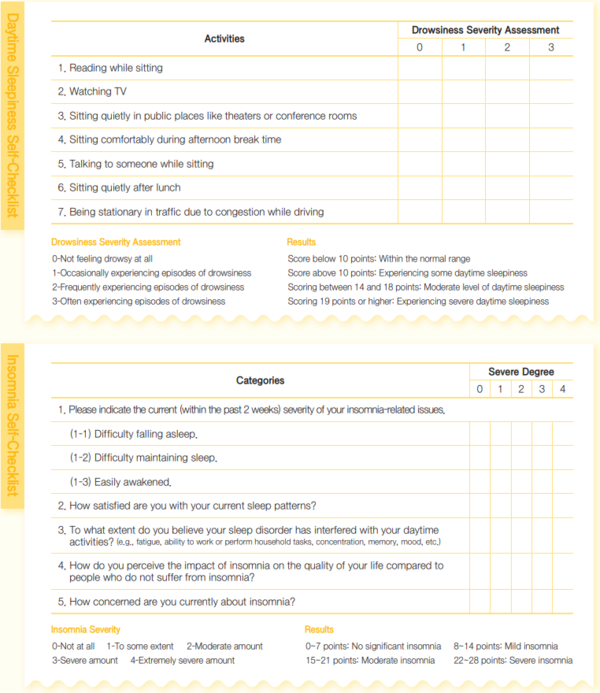
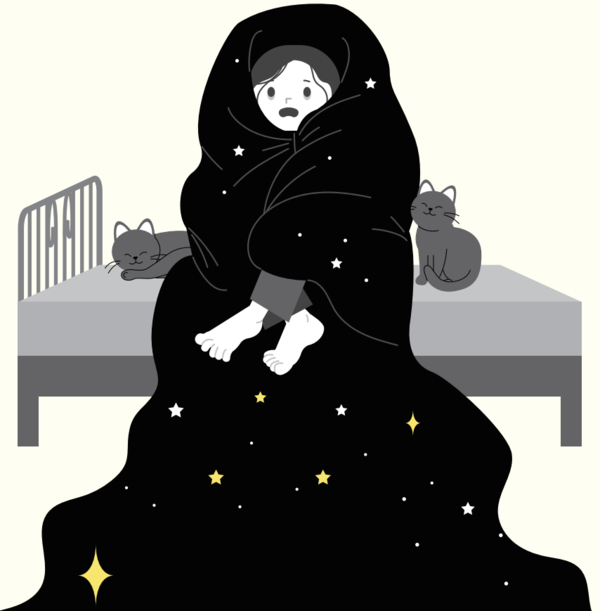
- Sharing Knowledge about Sleep Disorders
Here is an explanation of different sleep disorders by Sul Min-ho, a resident of the Psychiatry Department at Jeonbuk National University Hospital.
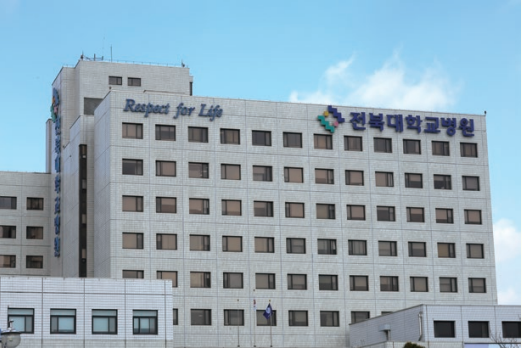
- Why Do You Feel Tired Even after Sleeping?
The disturbance of normal sleep patterns can significantly impact daily life and is referred to as a sleep disorder. “Sleep disorder” is a generic term encompassing issues related to the quantity and quality of sleep, and engaging in unusual activities during sleep or during the sleep-wake transition period, such as sleepwalking.
Sul defined four of the most common sleep disorders.
- Insomnia
Insomnia can lead to various physical and mental health conditions. Physical diseases caused by chronic insomnia can include heart failure, COPD (Chronic Obstructive Pulmonary Disease), asthma, hyperthyroidism, GERD (Gastroesophageal reflux disease), peptic ulcer, urinary disorder, and fibromyalgia syndrome. Mental diseases caused by chronic insomnia include anxiety disorder, depressive disorder, bipolar disorder, and PTSD (Post-Traumatic Stress Disorder). Having anxiety about sleep and having maladaptive sleep habits can worsen insomnia.
- Hypersomnia and Narcolepsy
Hypersomnia and narcolepsy cause excessive daytime sleepiness. Narcolepsy can be explained by abnormalities in the autoimmune system and a deficiency of hypocretin. An abnormality of the CNS (Central Nervous System) may be a reason for idiopathic hypersomnia.
- Breathing-Related Sleep Disorders
Hypopnea and muscle atony of respiratory and upper airways are natural phenomena that occur during sleep, and this makes normal sleep possible. However, OSA (Obstructive Sleep Apnea) and CSA (Central Sleep Apnea) prevent these normal functions. OSA occurs because of anatomical and physiological causes such as obesity, deviated nasal septum, sagged uvula, large tongue, small jaws, or a backward positioning of the jaws. CSA is typically caused by difficulty breathing from heart failure, strokes, and opiate use.
- RLS (Restless Legs Syndrome)
RLS is a known risk factor for women, for those who have RLS in their family history, for those who have iron deficiency and chronic renal failure, and with some pregnancies. It can arise or worsen while using antipsychotics and antidepressants.
- Exploring Primary Symptoms
The ICSD-3 (International Classification of Sleep Disorders-3) by the American Academy of Sleep Medicine classified sleep disorders into insomnia, sleep-disordered breathing, central hypersomnia, circadian rhythm sleep-wake disorders, parasomnia, sleep-related movement disorders, and many others. Let’s explore the primary symptoms associated with three of the main sleep disorders.
- Insomnia
Insomnia is defined as difficulty falling or staying asleep. It can manifest as sleep onset insomnia, sleep maintenance insomnia, and early morning awakening. If you find it challenging to initially fall asleep, if you struggle to fall back to sleep after waking up, or if you frequently experience waking from sleep, these may indicate symptoms of insomnia.
- Narcolepsy
Narcolepsy, a condition that causes someone to be intolerably sleepy during the day, presents with four main symptoms: daytime sleepiness, cataplexy, sleep paralysis, and hypnagogic or hypnopompic hallucinations. Cataplexy involves muscle weakness triggered by emotions, potentially leading to collapsing in severe cases. Sleep paralysis occurs when you are conscious before sleep or upon awakening but are unable to move due to muscle weakness, which can last for a few minutes before regaining control.
3. Parasomnia
Parasomnia involves unusual behavior during sleep, including NREM (Non-Rapid Eye Movement) sleep arousal disorder, RBD (Rapid Eye Movement Sleep Behavior Disorder), nightmares, RLS, etc. NREM sleep arousal disorder often results in behavioral issues during early sleep stages because of incomplete awakening. These behavioral issues include sleepwalking and sleep terrors. RBD arises due to a loss of muscle atony during the REM sleep phase, leading to potentially dangerous actions such as loud yelling, jumping, punching, and kicking. Lastly, RLS triggers discomfort in the body. Having the overpowering urge to move the legs or arms and tingling sensations are symptoms of RLS. RLS typically becomes most severe at night, and moving one’s body tends to relieve the bodily discomfort.
- Ways to Help You Sleep
Sleep plays a crucial role in the restoration of mental and physical fatigue accumulated during the daytime, serving as a process for consolidating new information. When short-term sleep disorders occur, cognitive ability and competency decline in the succeeding days, adversely affecting daily life. When sleep disorders become chronic, they increase the prevalence of various diseases such as hypertension, coronary artery disease, stroke, obesity, and diabetes mellitus and further worsen these diseases if already present.
"It is important to observe proper sleep hygiene to prevent sleep disorders," Sul stressed. Activities for observing proper sleep hygiene can prevent sleep disorders from forming. For example, avoid taking long naps, try to fall asleep and wake up at a set time each day, do not lie on the bed except during sleeping time, reduce the level of sound, light, and temperature in the bedroom, regularly exercise every day, refrain from exercising too close to bedtime, and refrain from going to sleep when overly full or hungry.
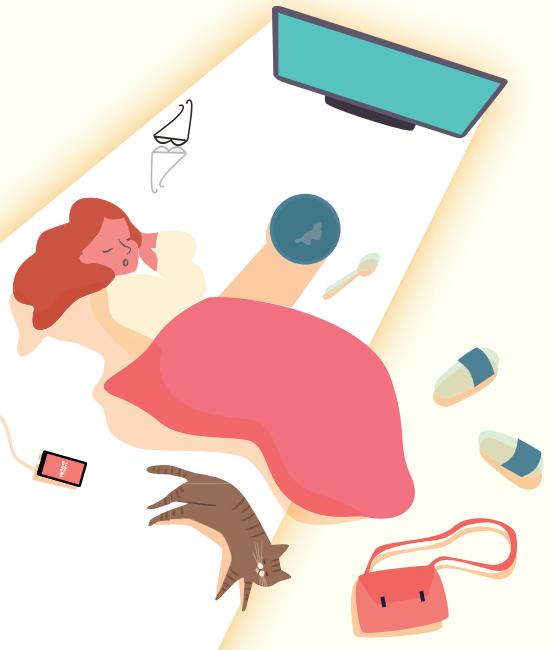
- Chicken or Egg Dilemma
Lee Ji-hyang is a pharmacist affiliated with The Jeonbuk Pharmaceutical Association. Lee’s role extends beyond the routine tasks of dispensing prescribed medications and providing dosage instructions as a pharmacist. Instead, she actively involves herself in counseling to directly assess the patient’s condition and then to prescribe medications. Lee said that a significant number of patients seeking her assistance are dealing with sleep disorders. According to Lee’s explanation, sleep disorders are considered the root cause of various illnesses. She explained that during a restful night’s sleep, powerful antioxidants are released in the body. However, if sleep deprivation persists due to sleep disorders, it can lead to the accumulation of toxins in the body or the development of inflammation, setting off a detrimental cycle. “Untreated sleep disorders can trap individuals in a detrimental cycle, making it difficult to distinguish whether other conditions have been triggered by the sleep disorder or if the sleep disorder itself arose due to other factors,” she warned.
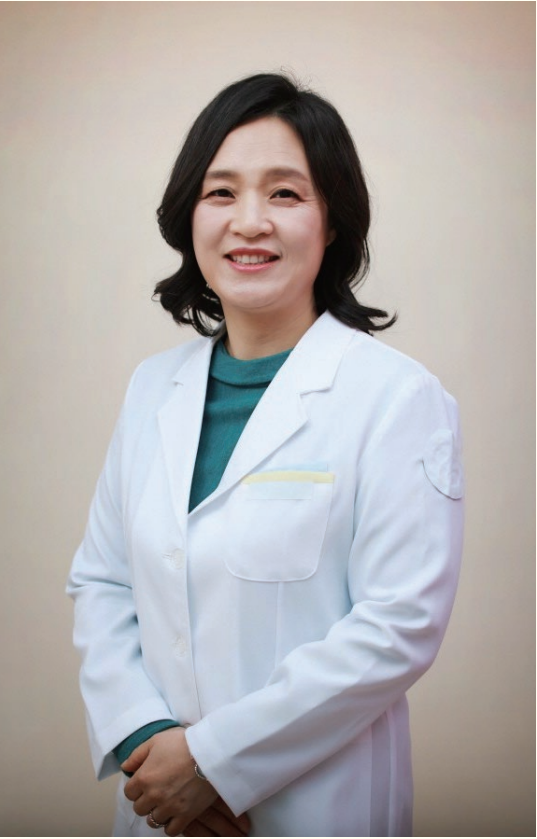
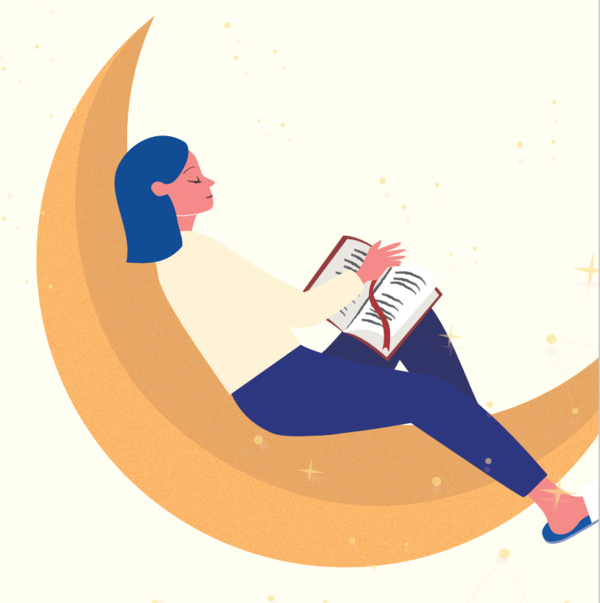
- Move Over, Sleep Disorder
Lee also discussed ways to overcome sleep disorders. She emphasized, “Rather than solely relying on sleep aids like medication, it is more important to explore the root causes of sleep disorders and understand any underlying issues with your body.” She provided information on common factors that can serve as underlying causes for sleep disorders. The first factor she discussed is caffeine, explaining that its diuretic and stimulating effects can negatively impact sleep, disrupting the natural sleep cycle. The second factor is exhaustion. Lee explained that even during sleep, energy is expended and individuals experiencing exhaustion may struggle with sleep due to the depletion of all energy reserves. For instance, cases where excessive exercise is undertaken before bedtime can contribute to sleep difficulties and resulting exhaustion. The third factor revolves around dietary habits, particularly excessive intake of glutamic acid. She explained that glutamic acid, commonly found in seasonings, has an excitatory effect on the brain, disrupting sleep. Lastly, Lee added, “By paying attention to signals from your mind and body and addressing any imbalances, the body will naturally find its way to restful sleep. Recognizing emotions such as inner anxiety or loneliness, and loving oneself more, can contribute to achieving a deep and restful sleep.”
As you can see, restful sleep is essential in a human's life. There are practical ways to get over sleep disorders. If you believe that you have a sleep disorder, don't ignore it and seek to regain your sleep!
ㅣ Jo Soo-jin Editor-in-Chief, Kim Doe-hye Editor, Shin Mu-hyun Reporter

